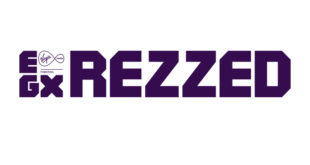This year’s London Games Conference on November 19th will have a number of high profile speakers from around the games industry sharing their knowledge.
Ahead of the event, Gamer Network boss Rupert Loman tells MCV about the launch and growth of the EGX show and the continuing challenges created by the digital transition
For the unaware, who are you and what do you do?
I’m co-founder and CEO of Gamer Network, an independent games media business which runs a variety of games websites (such as Eurogamer.net, USgamer.net and GamesIndustry.biz) and events (such as EGX, EGX Rezzed and GameHorizon).
Tell us a bit about your talk at LGC. Don’t just tell us the title – what is it really about?
I’m going to be presenting the results of the EGX 2014 attendee feedback survey. Every year we poll thousands of core gamers about their attitude towards the games and hardware on show and how it changes after they get hands-on with them. I’m going to attempt to show how this data links to Metacritic scores –demonstrating which games that gamers and journalists agree on (and which ones they don’t). I’m also going to make the foolish mistake of trying to project the critical reaction to games that are yet to be released based on how they were received by attendees of the show.
Can you give us an example of a successful product / launch you have worked on, and any specific learnings?
The launch and growth of EGX is the one that springs to mind. Although the show had 75,000 attendees this year, it started with much humbler beginnings and the lessons we’ve learnt about what works in a live environment and the games our attendees want to play has been eye opening and is helping inform both how we plan the show as well as influence other parts of the business.
What are the biggest challenges currently affecting the way games are marketed?
Although there have already been massive changes, I think the shift from boxed product to digital in its various forms is going to continue to affect the games industry and marketing for the next few years. The opportunities for developers now thanks to things like Steam are incredible. When bringing a game to market there can be lower risk and higher potential rewards, as you don’t need to worry about things like stock. You can take a longer-term view of things and games can sell for years, rather than being completely focused on the opening weekend. Obviously this process has been underway for several years but everyone is at different stages of that transition and there’s still much further to go. How, where and when to spend marketing money (or indeed, whether to spend money at all) will continue to change, but it will also impact things like PR, community management and development, to name a few.
What single area of games marketing should we pay attention to in 2015 – and why?
Experiential is an interesting area – obviously it has an important role when marketing a game, but how it intersects with retail and merchandising, community management, PR, QA and other areas means there’s still much further to go. YouTube and paying for editorial coverage is a hot topic at the moment and will be interesting to see how it plays out from here. And closer to home, the shift towards programmatic ad buying is at the front of mind for most marketeers and online media businesses and will bring new opportunities and challenges for everyone.

 MCV/DEVELOP News, events, research and jobs from the games industry
MCV/DEVELOP News, events, research and jobs from the games industry



